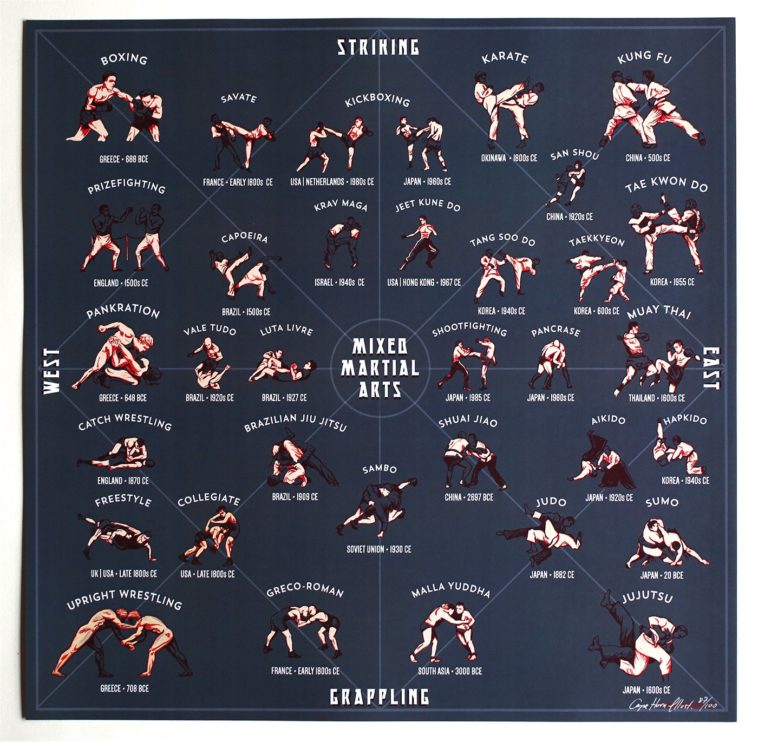Discovering The Different Styles Of Traditional Martial Arts: Which One Is Right For You?
Discovering The Different Styles Of Traditional Martial Arts: Which One Is Right For You?
Blog Article
Post By-Funder Denton
When it concerns traditional martial arts, finding the appropriate style can feel frustrating. Each technique offers unique ideologies and techniques that deal with various rate of interests and objectives. Whether what are the martial arts belt order trying to find Self-Defense, physical conditioning, or mental discipline, there's a martial arts that can fulfill your needs. So, how do you pick the one that's best for you? Let's discover some popular styles and what they can provide you.
Recognizing the Viewpoint Behind Martial Arts Styles
While many people see martial arts simply as a way of Self-Defense or fitness, recognizing the much deeper ideology behind these styles can significantly improve your practice.
Each martial art embodies distinct concepts and values that lead you on and off the floor covering. As an example, techniques like karate emphasize regard and self-control, while others, like tai chi, concentrate on consistency and balance.
By delving into these philosophies, you'll discover just how they shape your way of thinking, boost your emphasis, and foster individual growth. Welcoming this thoughtful aspect can aid you develop resilience, persistence, and a greater sense of neighborhood.
Eventually, involving with the underlying concepts behind martial arts can change your journey from simple physicality to a profound, all natural experience.
Popular Standard Martial arts and Their Special Advantages
Conventional martial arts encompass a varied range of styles, each offering unique advantages that can boost your physical and psychological well-being.
For how to do martial arts for kids , Karate emphasizes striking strategies, improving your agility and self-control. Taekwondo focuses on high-energy kicks, advertising adaptability and cardiovascular fitness. tiger martial arts grappling and throwing methods, cultivating balance and calculated reasoning.
At The Same Time, Kung Fu incorporates liquid motions with reflection, boosting your focus and internal tranquility. Aikido emphasizes redirecting a challenger's energy, enhancing your recognition and dispute resolution abilities.
Last But Not Least, Brazilian Jiu-Jitsu fixate ground combating, building strength and durability. By checking out these martial arts, you'll find which practice lines up with your interests and objectives, enabling you to gain the special benefits each design needs to offer.
Selecting the Right Style Based Upon Your Goals and Rate of interests
Locating the appropriate martial arts design for you includes considering your individual objectives and interests.
If you're aiming to enhance fitness, styles like Tai Chi or Kickboxing might match you. For Self-Defense, think about Krav Maga or Brazilian Jiu-Jitsu. If you're drawn to technique and custom, Martial arts or Taekwondo could be your best bet.
Think about whether you like an even more fluid, elegant method or an effective, striking design.
Additionally, think about the area and environment of the dojo or workshop-- do you desire a competitive atmosphere or a supportive, family-like setup?
Take the time to attempt a few classes, talk with teachers, and involve on your own in the society.
Inevitably, pick a style that delights you and lines up with your desires.
Conclusion
In your trip with traditional martial arts, remember that each design supplies a distinct path to individual growth and self-discovery. By exploring various dojos and connecting with instructors, you'll find the method that resonates with you. Whether you seek Self-Defense, physical fitness, or a much deeper thoughtful connection, there's a martial arts waiting to enrich your life. Accept the experience, and let your interest overview you to the right style that fits your objectives
